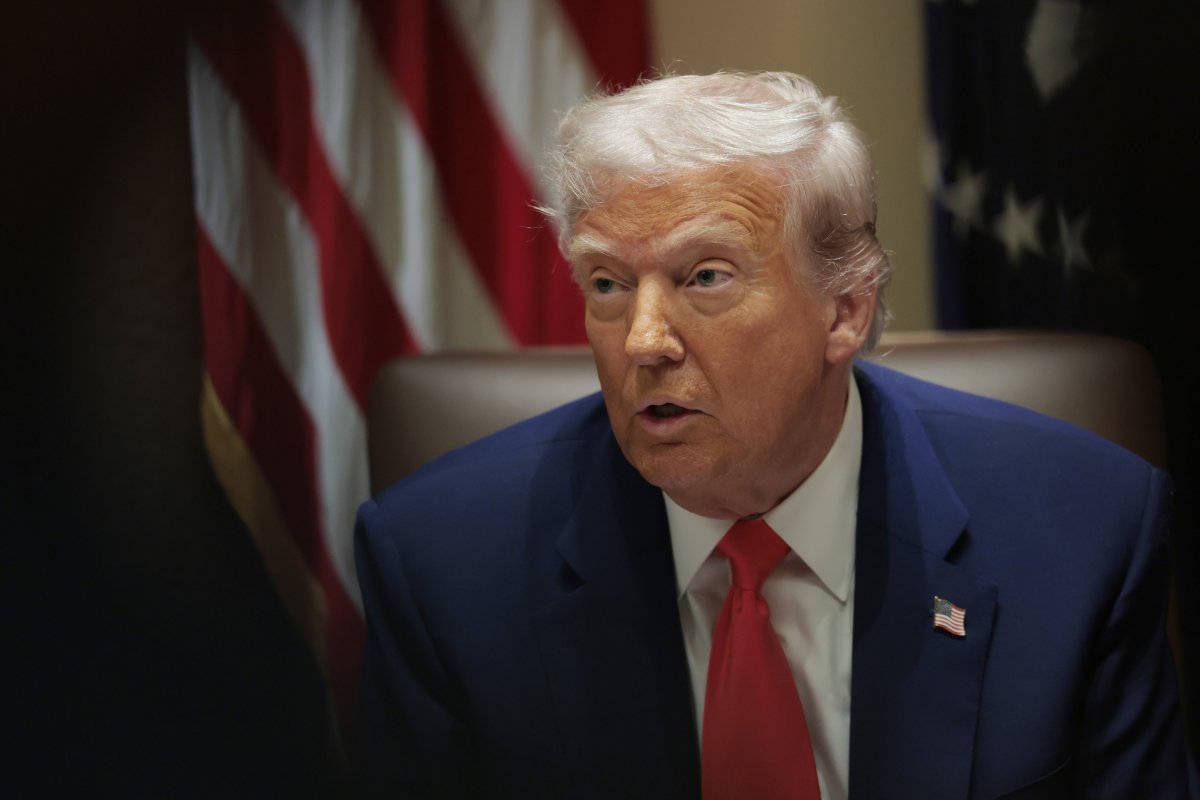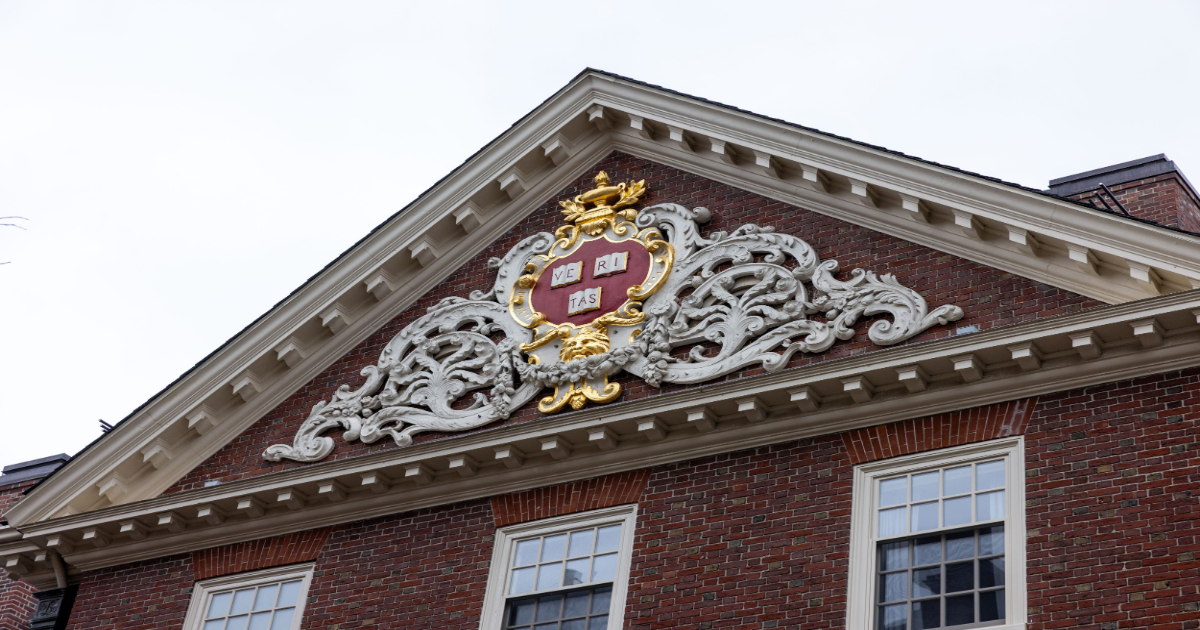A federal task force under President Donald Trump froze $2.2 billion in funding for Harvard University on Monday, after the school said it would not abide by the Trump administration’s list of demands.
Newsweek reached out to the Department of Education for comment via email on Monday.
Why It Matters
Trump and his administration have ripped into Ivy League institutions like Harvard and Columbia in the wake of nationwide demonstrations and protests related to Israel’s war with Hamas in the Gaza Strip.
The White House has accused Ivy League universities of allowing antisemitism on campus grounds.
Before Harvard, the Trump administration initially withheld $400 million in federal funds from Columbia and said it would not reinstate funding if the school did not change its policies.
Columbia ultimately caved to Trump‘s demands last month and announced new policies including banning masks concealing someone’s identity and hiring 36 campus officers “who will have the ability to remove individuals from campus and/or arrest them when appropriate.”
Columbia was the epicenter of campus protests last year amid the war in the Gaza Strip. Students across the country demanded that universities and the federal government sever ties with the Israeli government in protest of its military strikes that have killed tens of thousands of people in Gaza and displaced 2 million.
What To Know
In a letter dated Monday, written by Harvard’s legal team, the school said it would not give in to the list of the administration’s demands, including getting rid of its diversity, equity and inclusion (DEI) programs.
The letter read: “The university will not surrender its independence or relinquish its constitutional rights. Neither Harvard nor any other private university can allow itself to be taken over by the federal government. Accordingly, Harvard will not accept the government’s terms as an agreement in principle.”
The lawyers noted that they are willing, however, to discuss with the administration current plans to “improve the experience of every member of its community.”
In a follow-up statement, the federal Joint Task Force to Combat Anti-Semitism ripped the Ivy League institution for what it called a “troubling entitlement mindset.”
The statement read: “Harvard’s statement today reinforces the troubling entitlement mindset that is endemic in our nation’s most prestigious universities and colleges – that federal investment does not come with the responsibility to uphold civil rights laws.”
It added: “The disruption of learning that has plagued campuses in recent years is unacceptable. The harassment of Jewish students is intolerable. It is time for elite universities to take the problem seriously and commit to meaningful change if they wish to continue receiving taxpayer support.”
“The Joint Task Force to combat anti-Semitism is announcing a freeze on $2.2 billion in multi-year grants and $60M in multi-year contract value to Harvard University,” the statement concluded.

The Veritas shield on Stone House is pictured at Harvard University on March 17 in Cambridge, Massachusetts. (Photo by Scott Eisen/Getty Images) The Veritas shield on Stone House is pictured at Harvard University on March 17 in Cambridge, Massachusetts. (Photo by Scott Eisen/Getty Images)
The Joint Task Force to Combat Anti-Semitism was formed in February, composed of representatives from the departments of Education, Justice, Health and Human Services and other agencies, the Justice Department noted in a press release.
Political analyst Craig Agranoff told Newsweek via text that the administration’s move to freeze the funding is “complex” and “invites broader questions about government’s role in higher education.”
Agranoff continued: “On one hand, it signals a willingness to use federal leverage to influence university policies, which some might see as a bold check on institutional priorities. On the other, it risks escalating tensions in an already polarized debate, potentially setting a precedent for more direct interventions elsewhere.”
“Whether it’s a good move for the administration depends on perspective; supporters may view it as decisive, while critics could argue it oversteps,” Agranoff added. “The real impact hinges on how courts and public opinion respond in the coming months.”

President Donald Trump speaks during a Cabinet meeting at the White House on April 10 in Washington, D.C. (Photo by Anna Moneymaker/Getty Images) President Donald Trump speaks during a Cabinet meeting at the White House on April 10 in Washington, D.C. (Photo by Anna Moneymaker/Getty Images)
What People Are Saying
Democratic Senator Ed Markey of Massachusetts reacted to Harvard defying the Trump administration, writing on X, formerly Twitter: “This is how we fight back.”
Massachusetts Governor Maura Healey, a Democrat, said in a statement on X Monday: “I join others around the country in extending congratulations and gratitude to Harvard University, President [Alan] Garber and the Corporation for their leadership in standing up for education and freedom by standing against the Trump Administration’s brazen attempt to bully schools and weaponize the U.S. Department of Justice under the false pretext of civil rights.”
Healey added: “We all agree that antisemitism has no place in America and that it should be fought in the workplace, classrooms and everywhere. Complying with the Trump Administration’s dangerous demands would have made us less all less safe and less free.”
Harvard said in a post to X on Monday: “‘No government—regardless of which party is in power—should dictate what private universities can teach, whom they can admit and hire, and which areas of study and inquiry they can pursue.’ – President Alan Garber”
Leo Terrell, senior counsel to the assistant attorney general for civil rights, said in the Justice Department’s February press release: “Anti-Semitism in any environment is repugnant to this Nation’s ideals.”
Terrell added: “The Department takes seriously our responsibility to eradicate this hatred wherever it is found. The Task Force to Combat Anti-Semitism is the first step in giving life to President Trump’s renewed commitment to ending anti-Semitism in our schools.”
What Happens Next
It’s not immediately clear if Harvard will attempt to fight the federal task force in court over its decision to freeze funding.
Newsweek also reached out to King & Spalding and Quinn Emanuel Urquhart & Sullivan—the two firms representing Harvard—for comment via online form and email on Monday.



